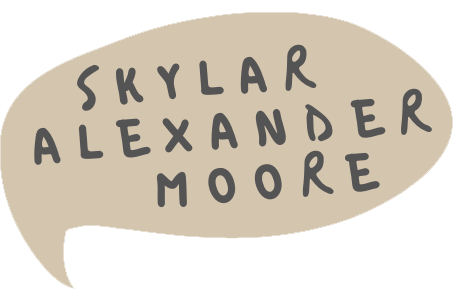Workshopping: Getting Started
This is the first installment of "How To Not Be A Dick (In A Workshop At Least)"–a three part series adapted from a teaching document written originally for 15-19 year-olds enrolled in the Midwest Writing Center's Young Emerging Writers summer program.
Want to establish your own workshop? Here's a quick guide to getting the engine running.
Getting Started
Adapt the structure outlined below to best suit your environment and situation; experiment, keep what works, discard the rest.
Establish the time, date, and frequency of a workshop, as well as its participants. Rules of etiquette, length of pieces, how long the group will spend on each piece should all be ironed out before the workshop begins.
Submitted work in advance. Email chains, hard copies—use whatever works best. While some workshops do work cold, it’s highly suggested that the participants have time (an hour, a day, a week) to really sit with the work before the workshopping starts.
The workshop convenes. Each participant has read all the work in advance and provided comments and other markups on a hard copy of the work (tracking changes/comments in Microsoft Word can work too, if you're long distance). If part of your guidelines, each piece can be accompanied with a short letter identifying what works and what doesn't in the piece to be workshopped.
While the author’s piece is being workshopped, the author says nothing. This is essential, and is not negotiable. The only exception I personally tolerate in my own workshops is the rare case of a typo in the work entirely derailing the conversation; in that case, the author should save everyone some time and clear it up. It’s healthy to ask questions of the author’s intent during the workshop process, but really this is a question of each other, not the author.
Once the workshop is finished, the author may answer any pressing questions. The author should thank everyone for their attention, collect the letters/marked up copies of their work, and quickly move on to the next person. Stick to the time restraints so that everyone being workshopped will have equal attention.
Rinse and repeat until workshop session is finished.
Distribute next session’s work at end of session. If unavailable, send work to workshop companions as soon as possible.
Best Practices
Share the load. Share the responsibilities of hosting and have your workshop attendees bring an assortment of snacks and wine (or beer, or a non-alcoholic beverage) to share.
Put it in your calendar, and don't cancel at the last minute. We're all busy; unless your baby is on fire, don't be that guy.
Carve in social time before workshopping. Haven't seen each other in a while? It might be good to have a social hour prior to getting down to business.
If all else fails, more wine.
What do you do to make your workshop special? How does your group get down to business? Let me know in the comments.


